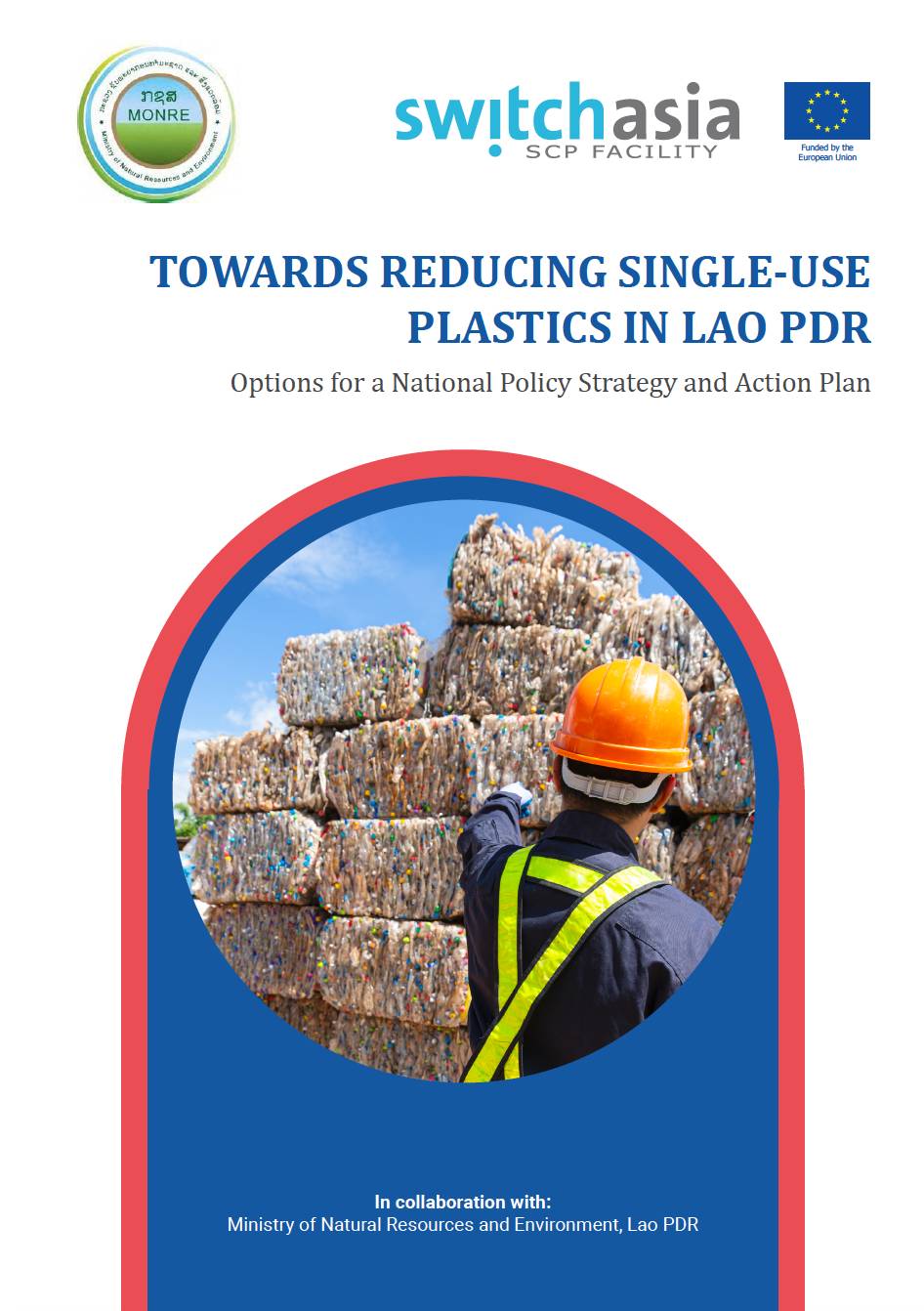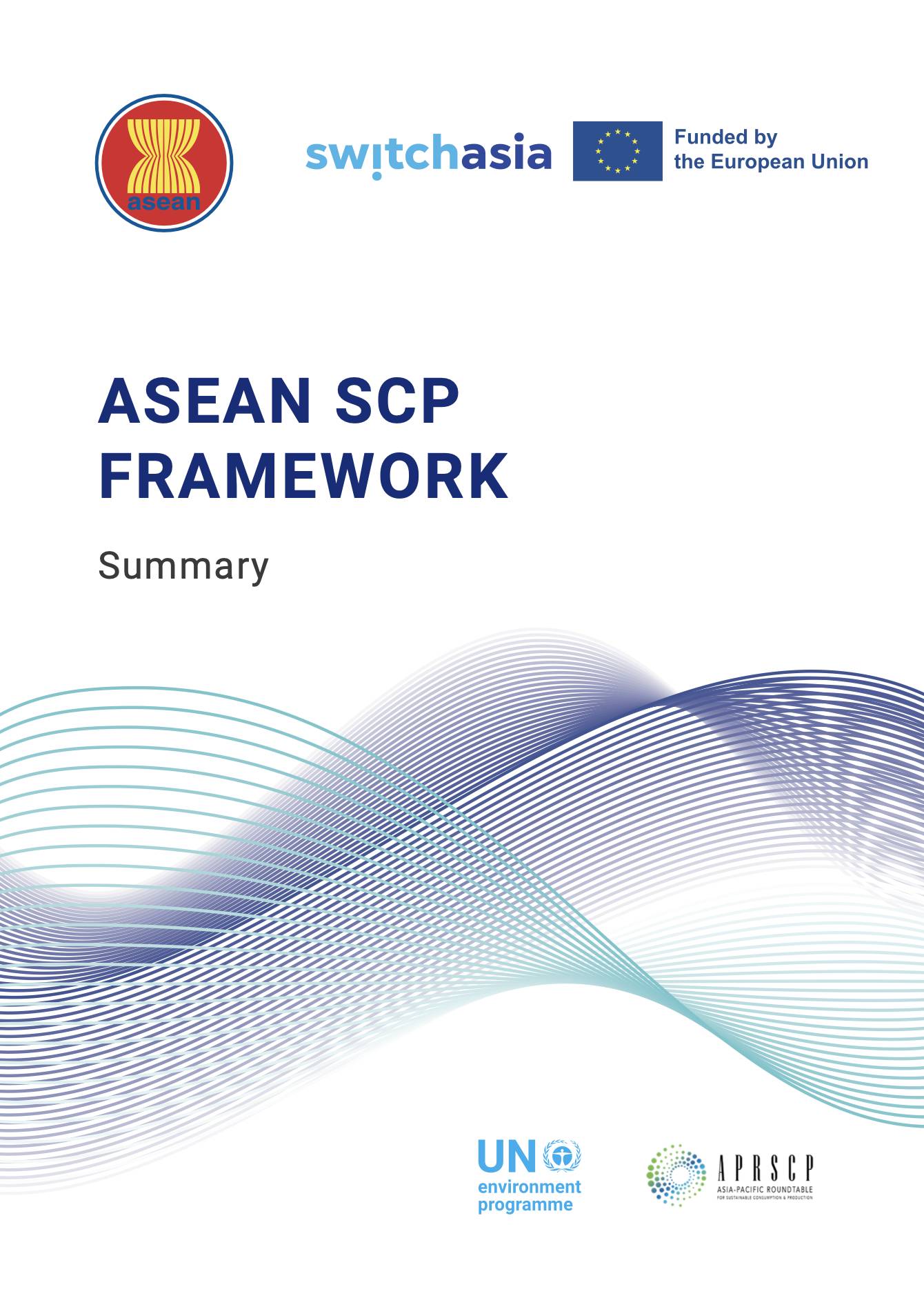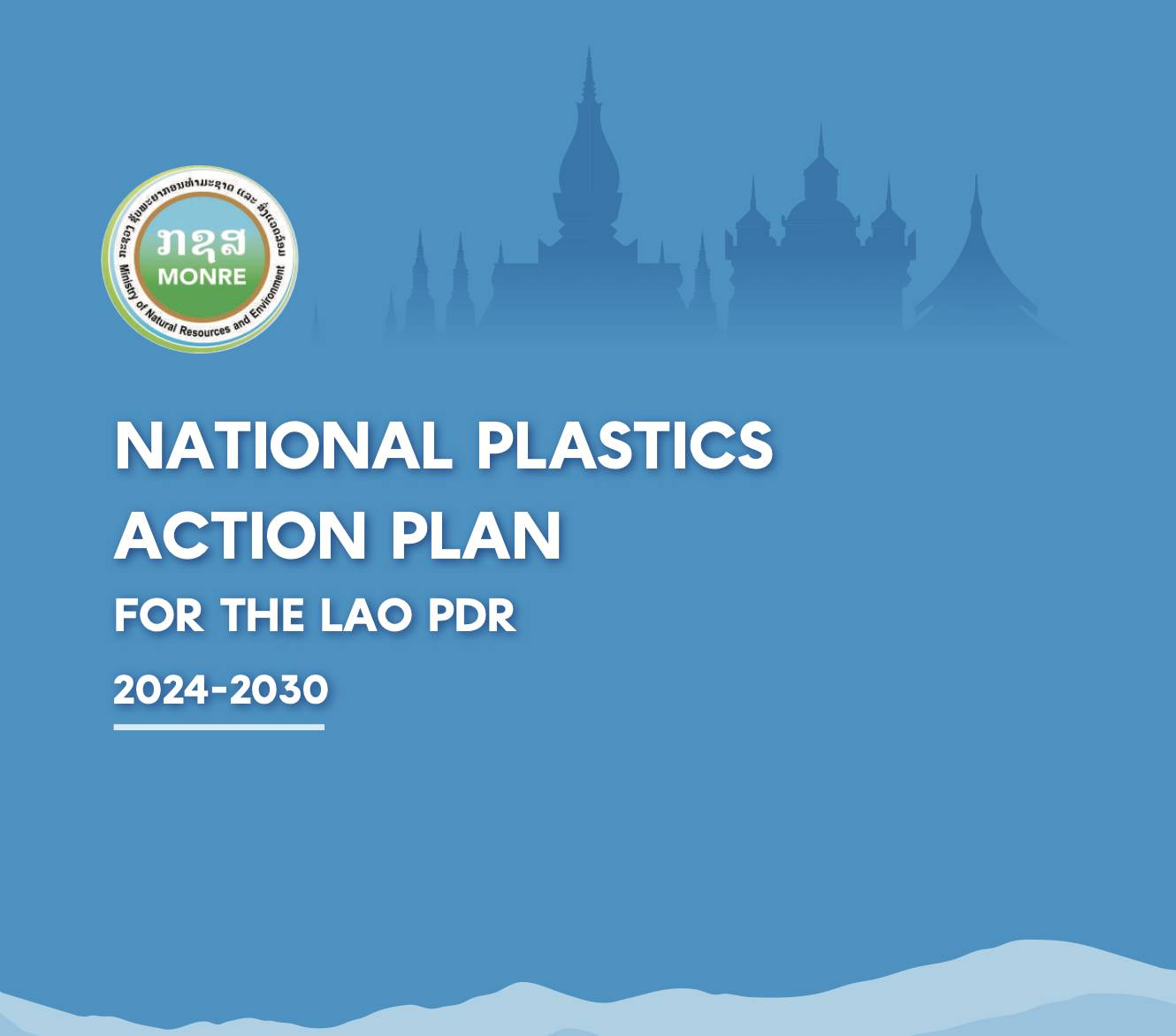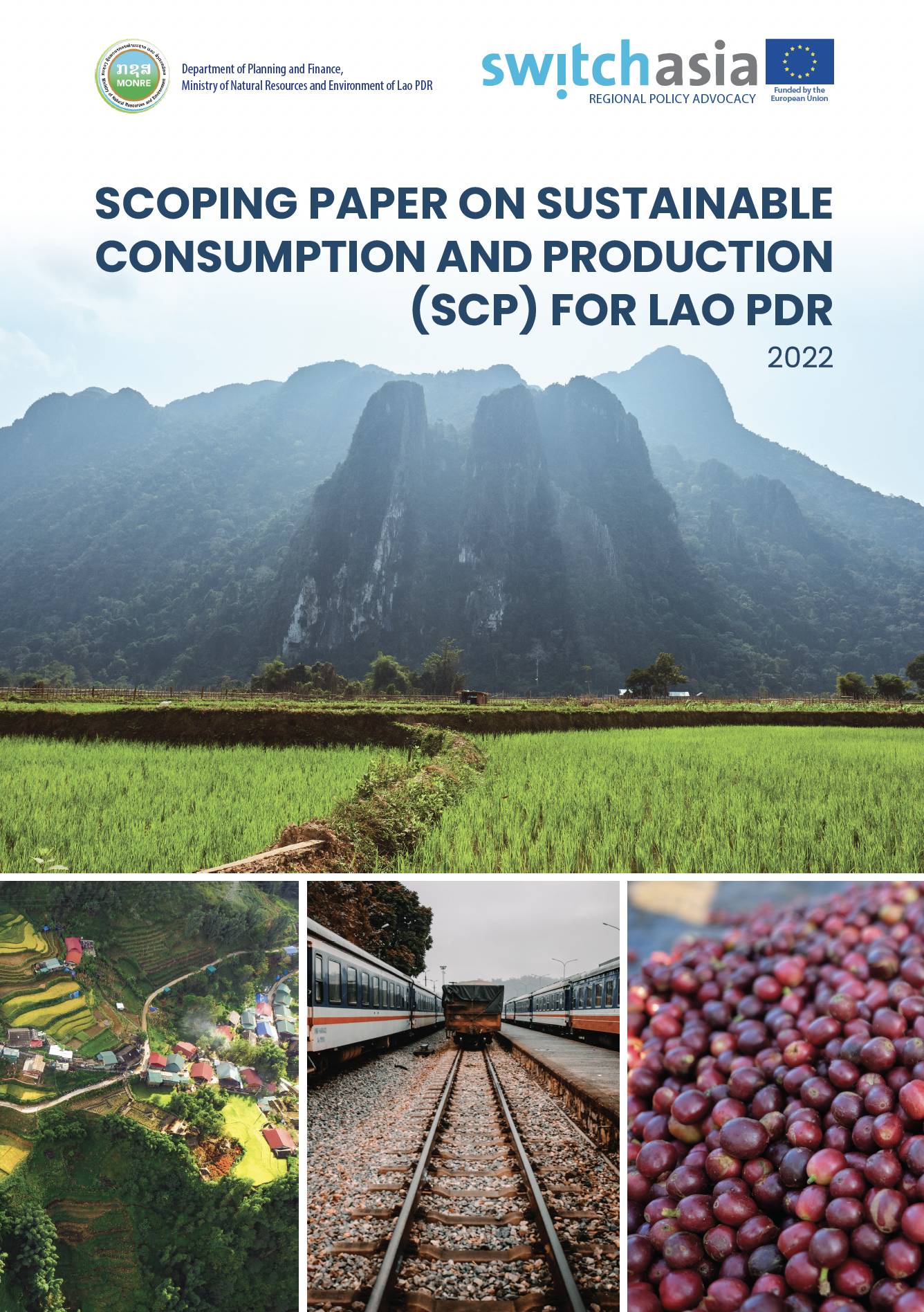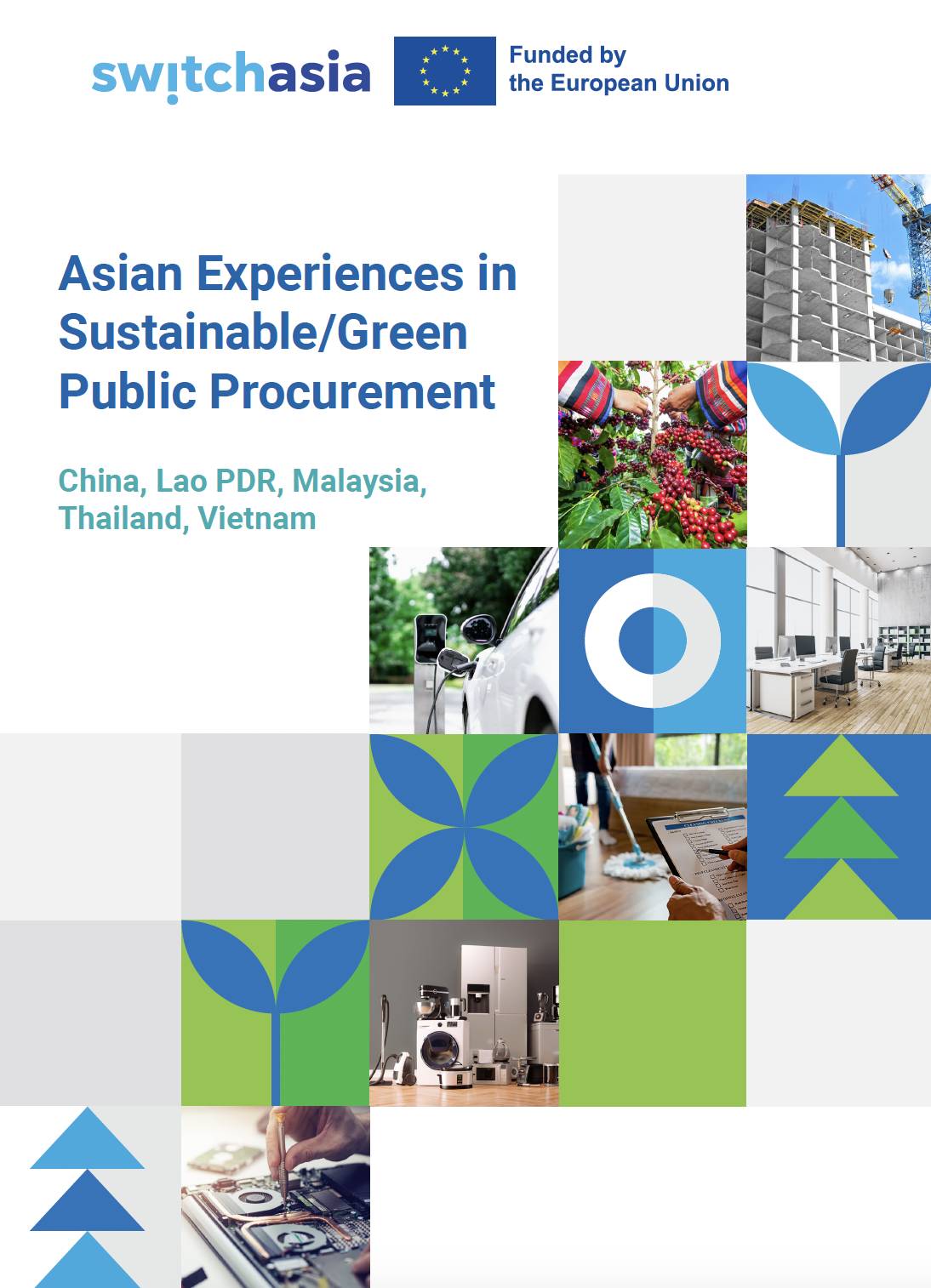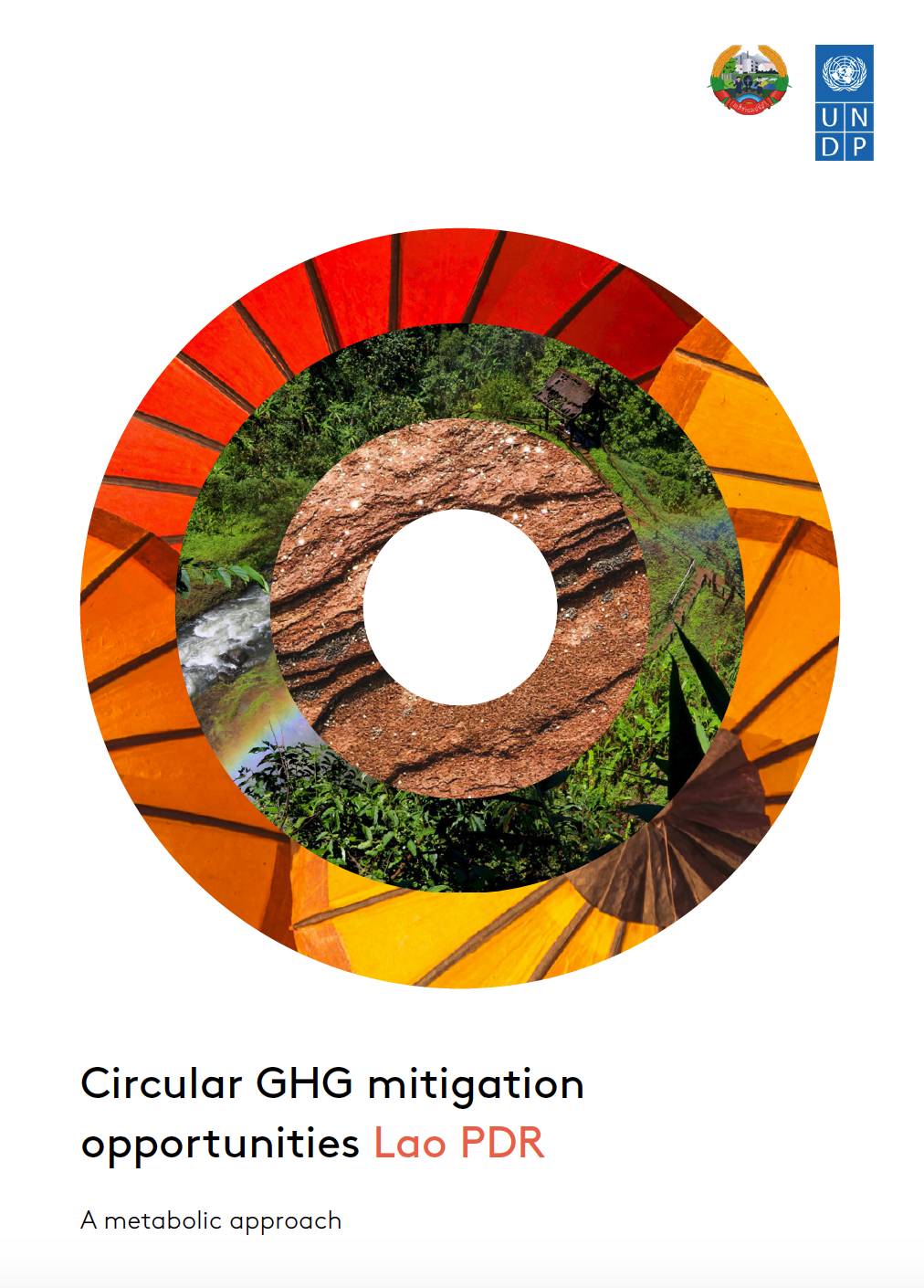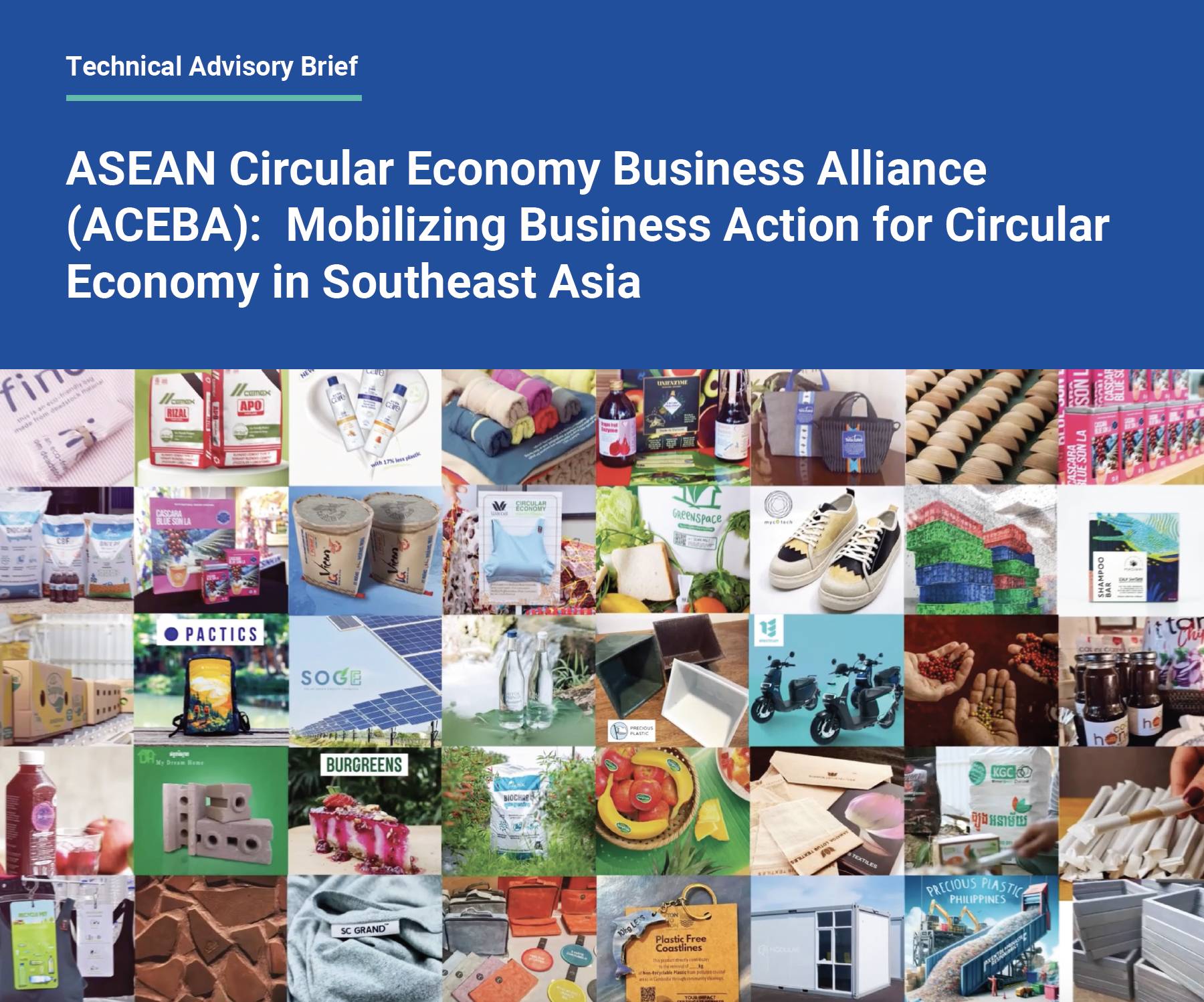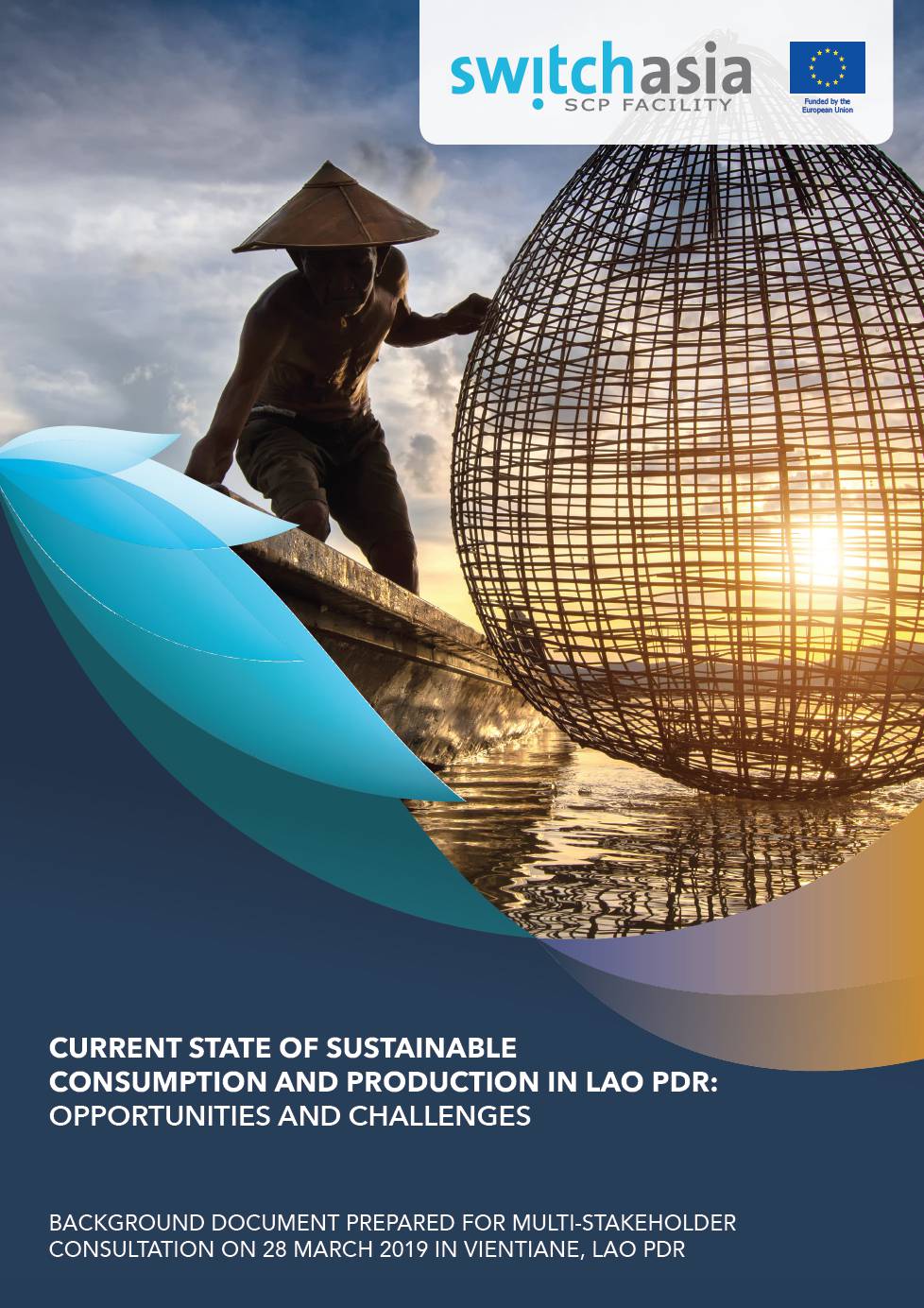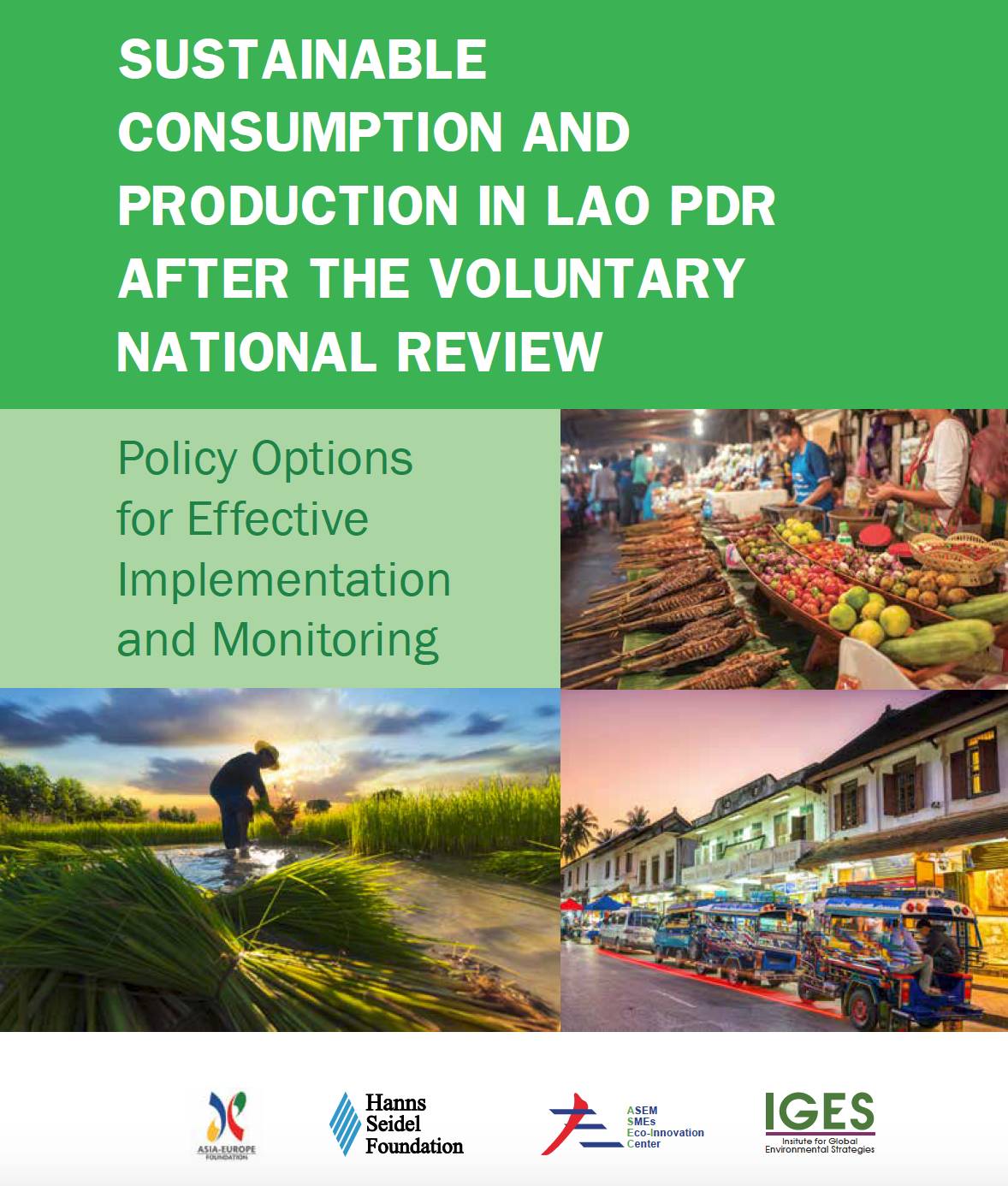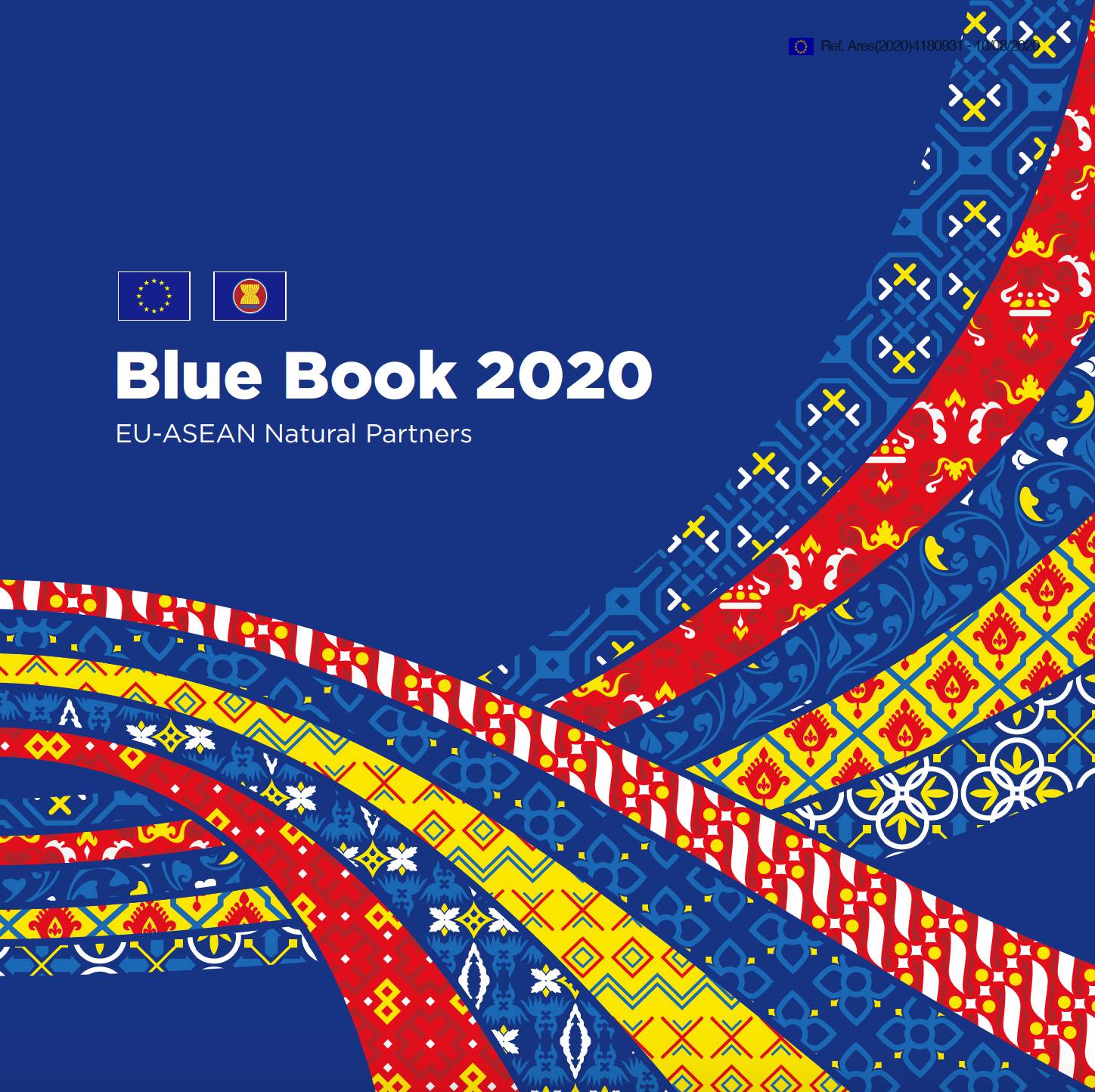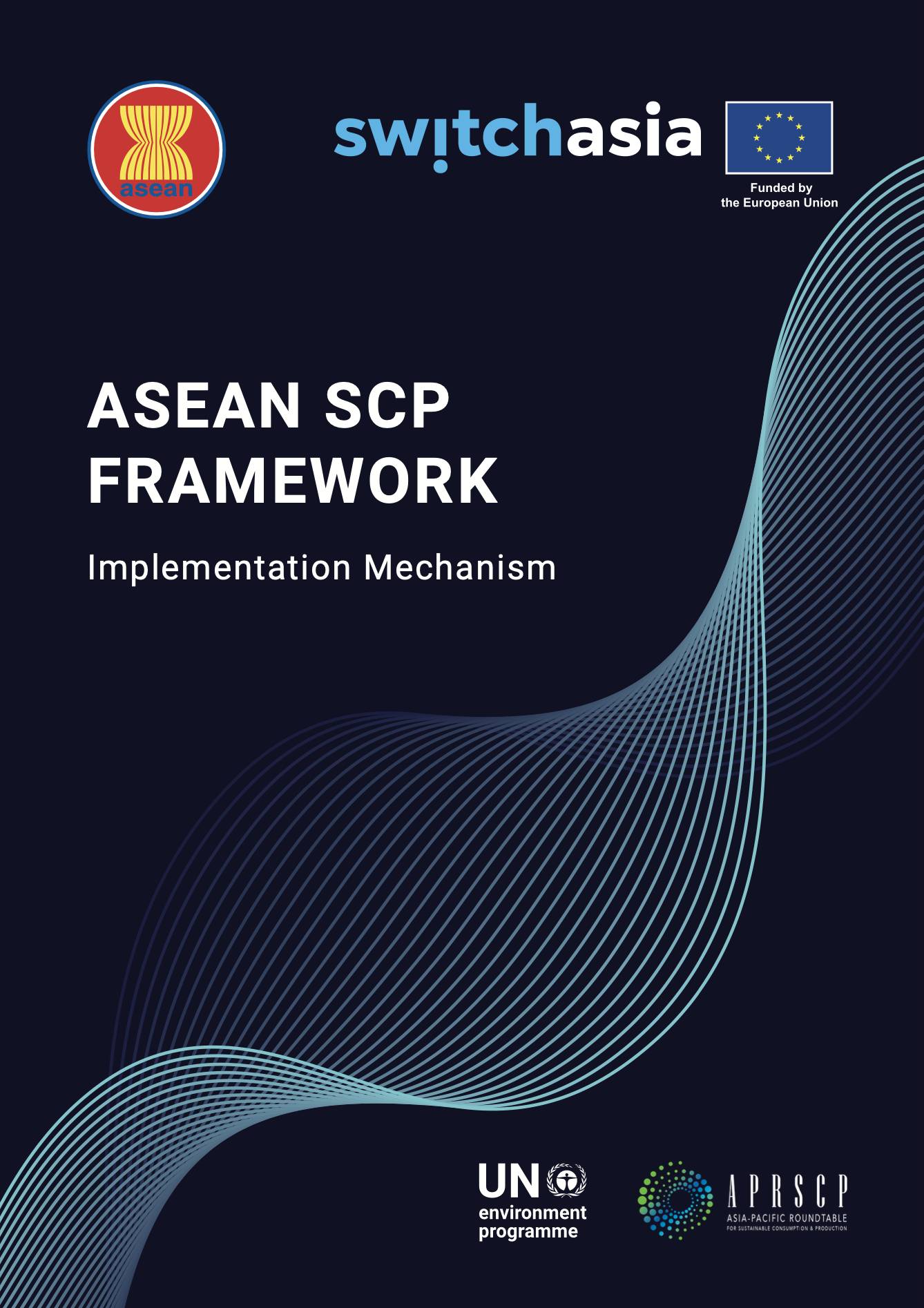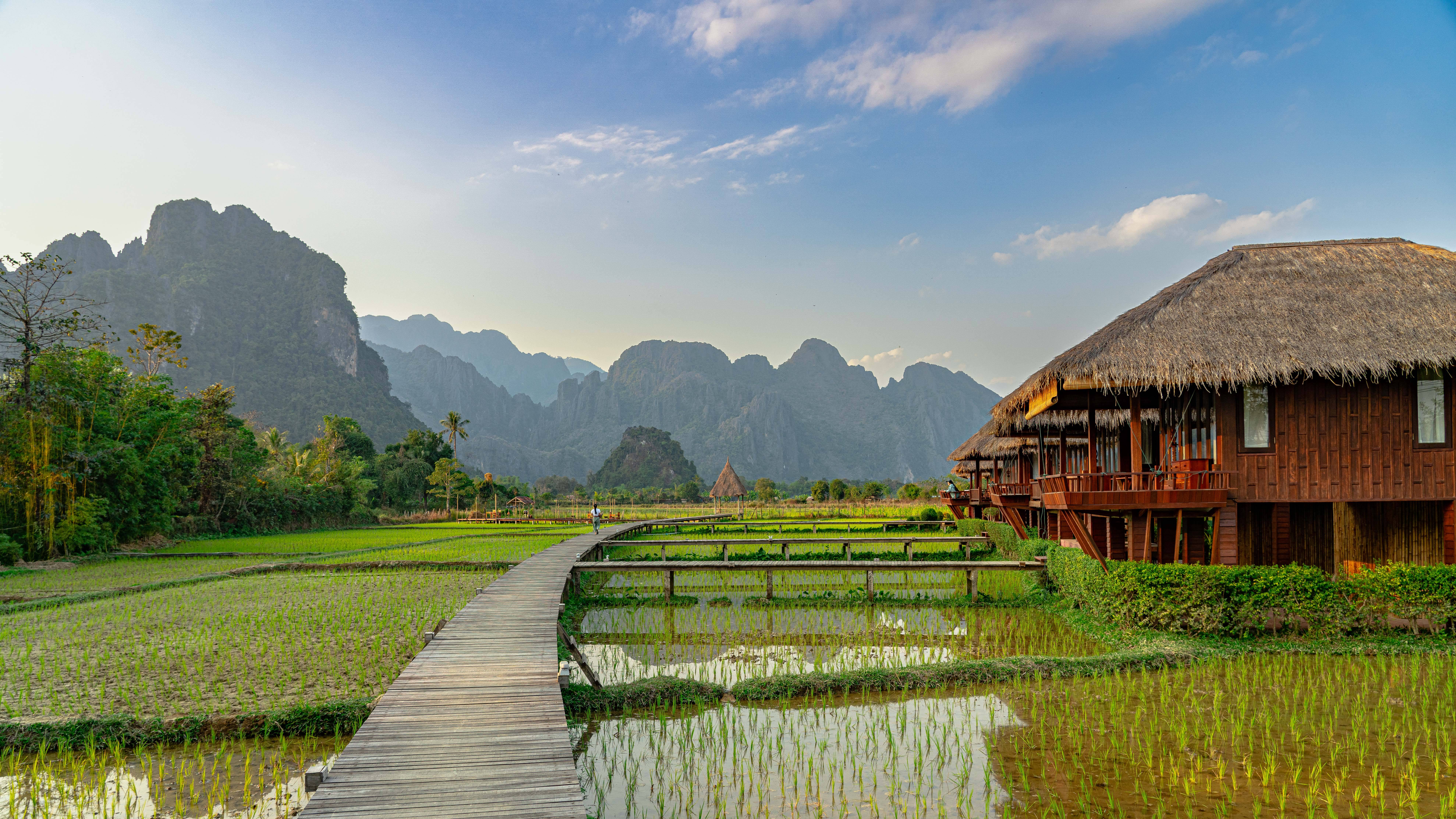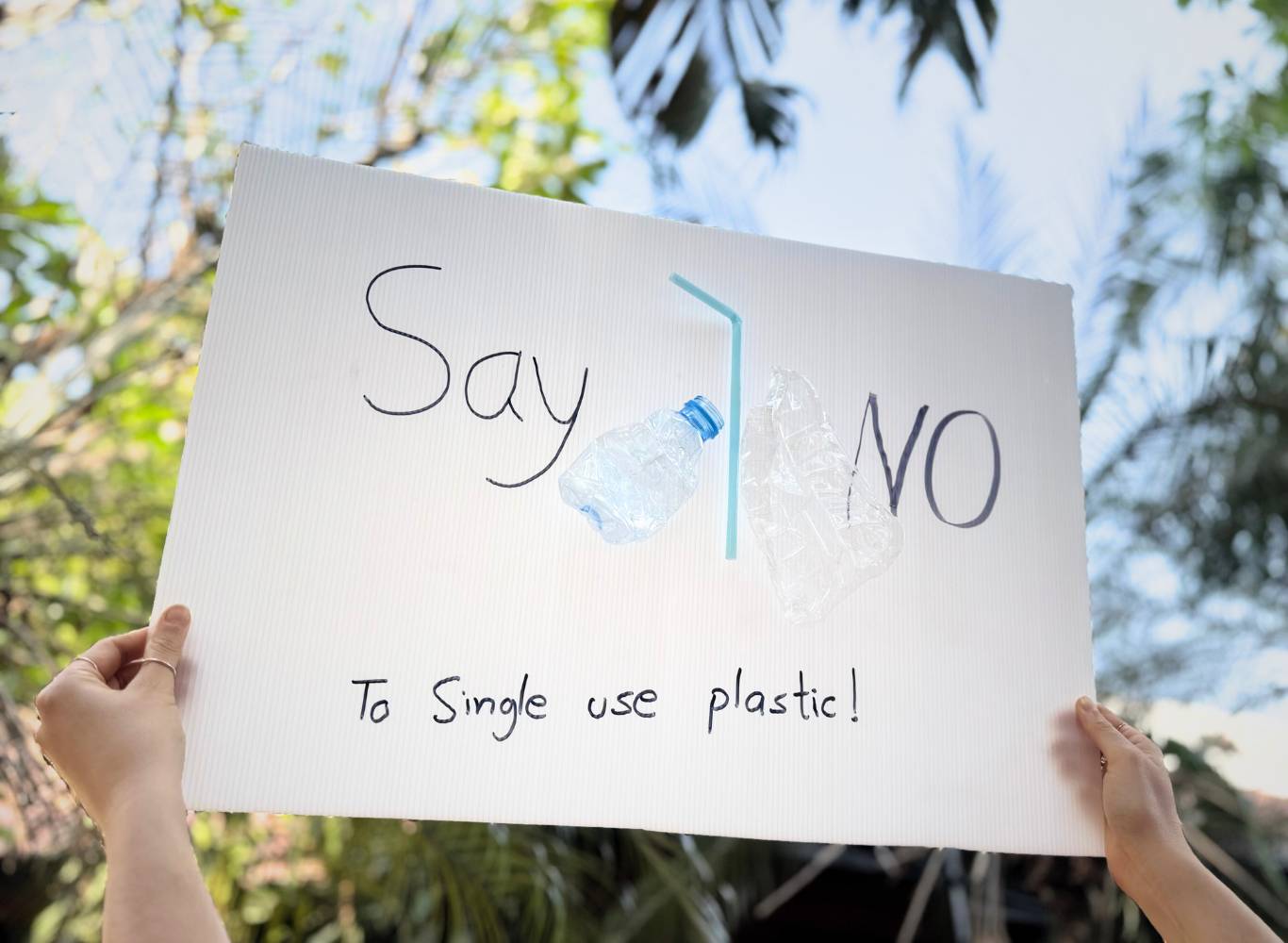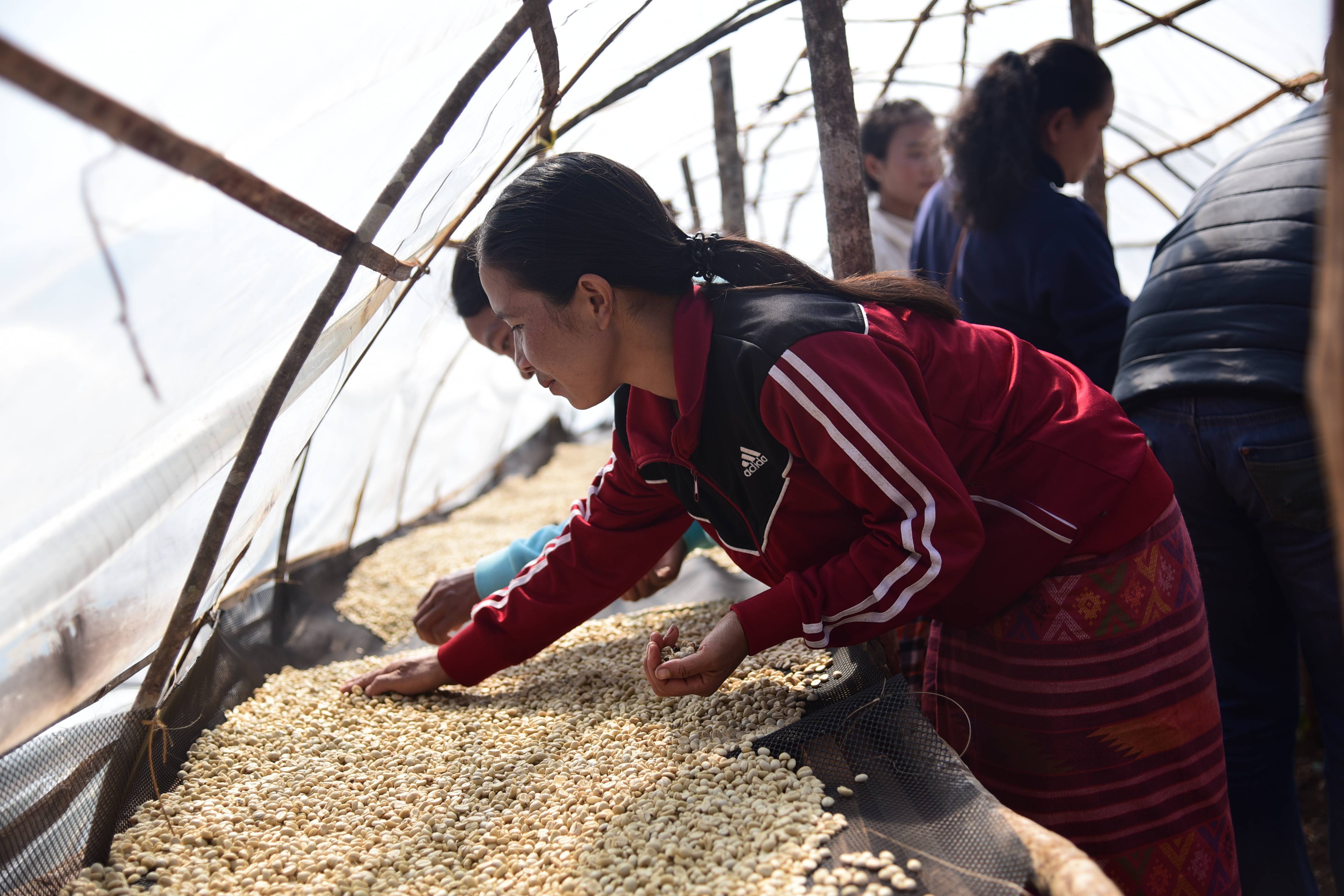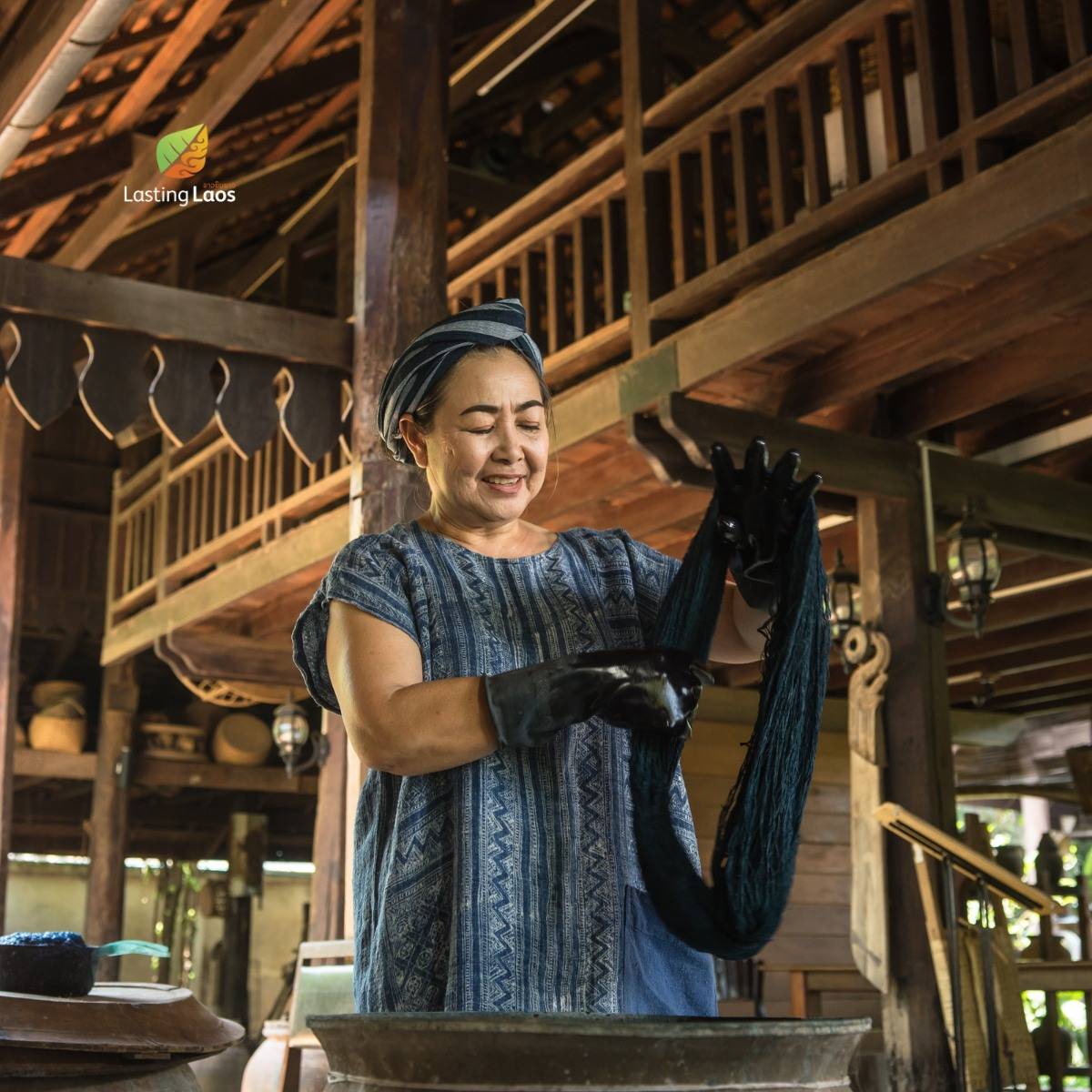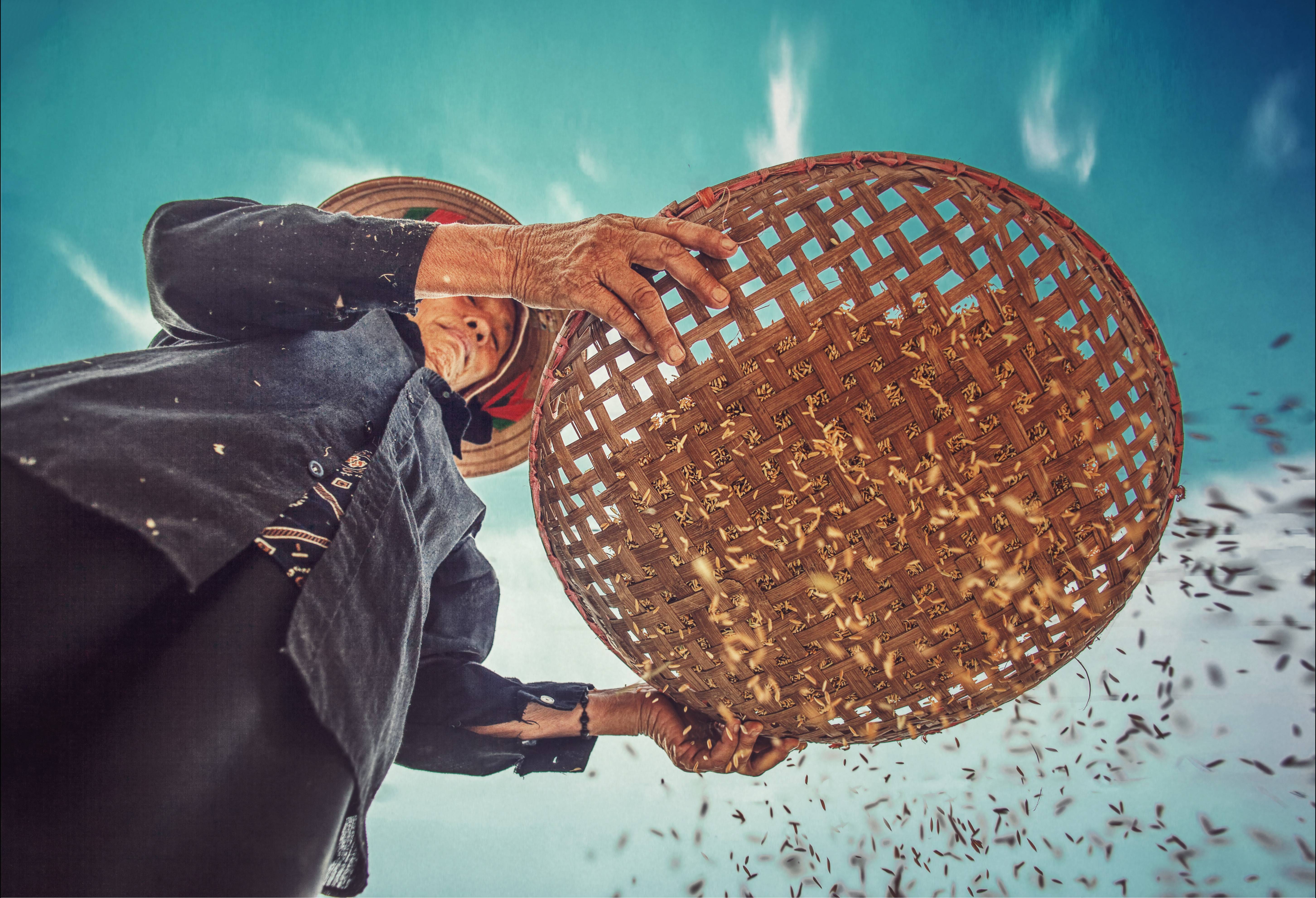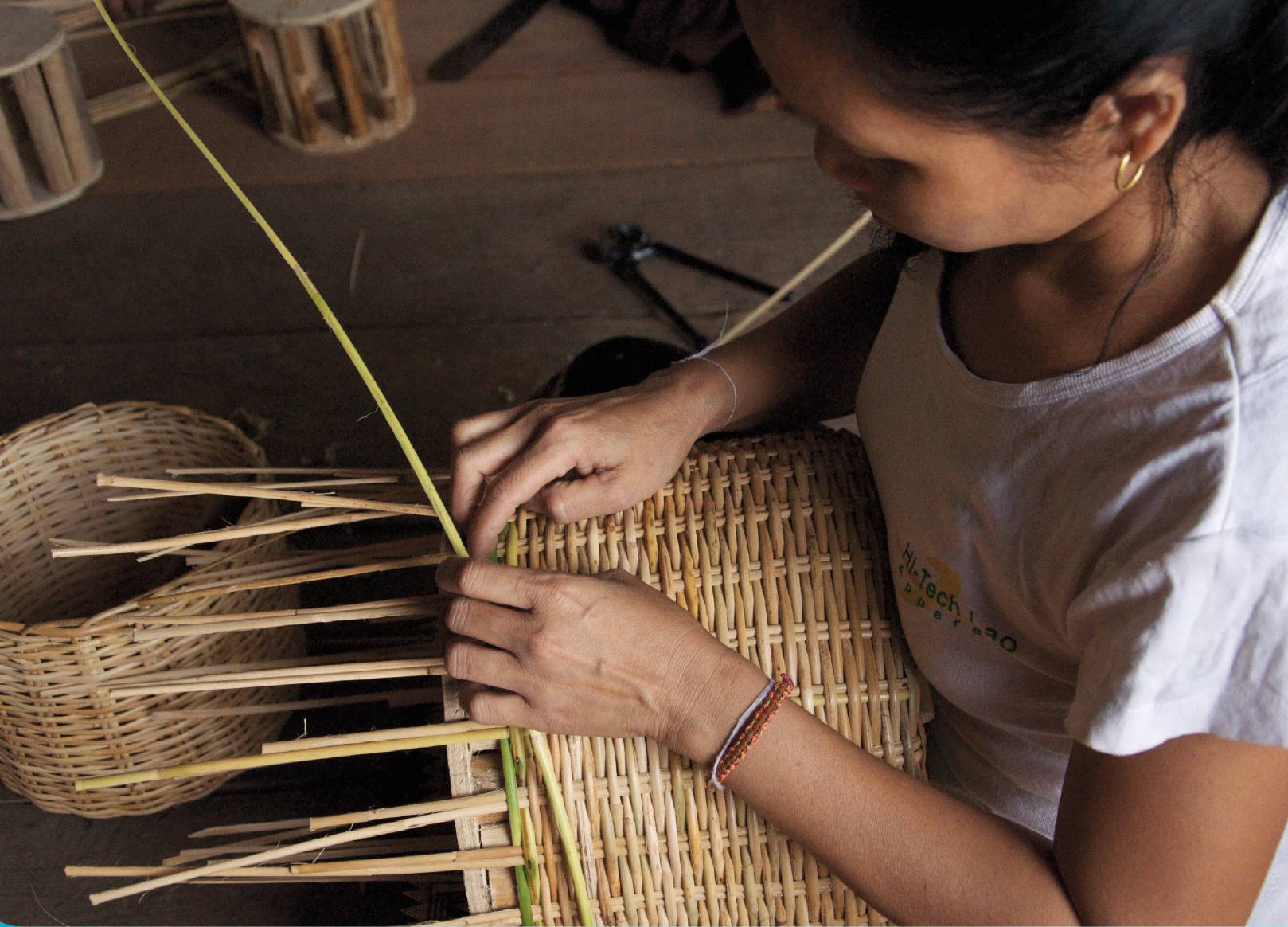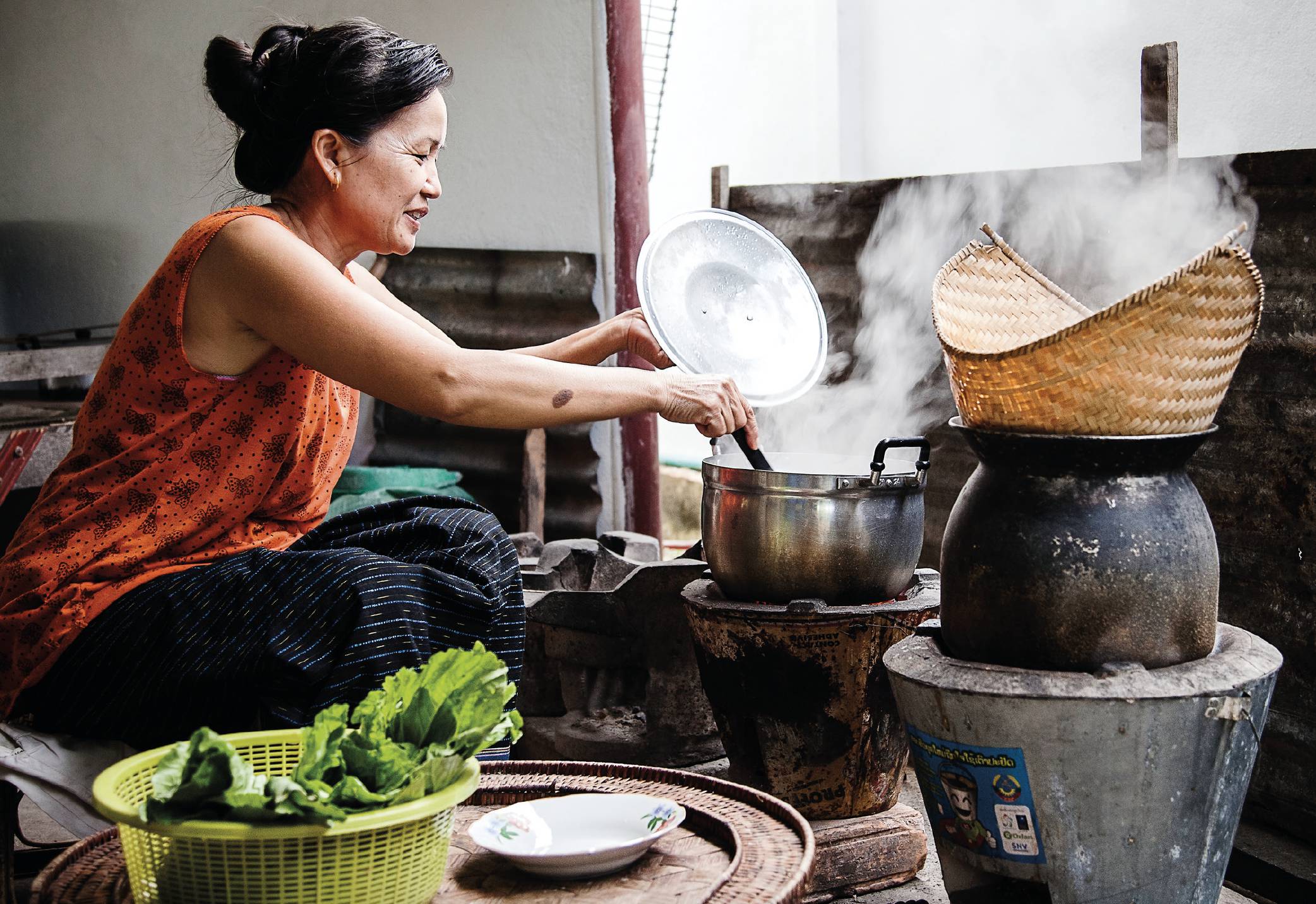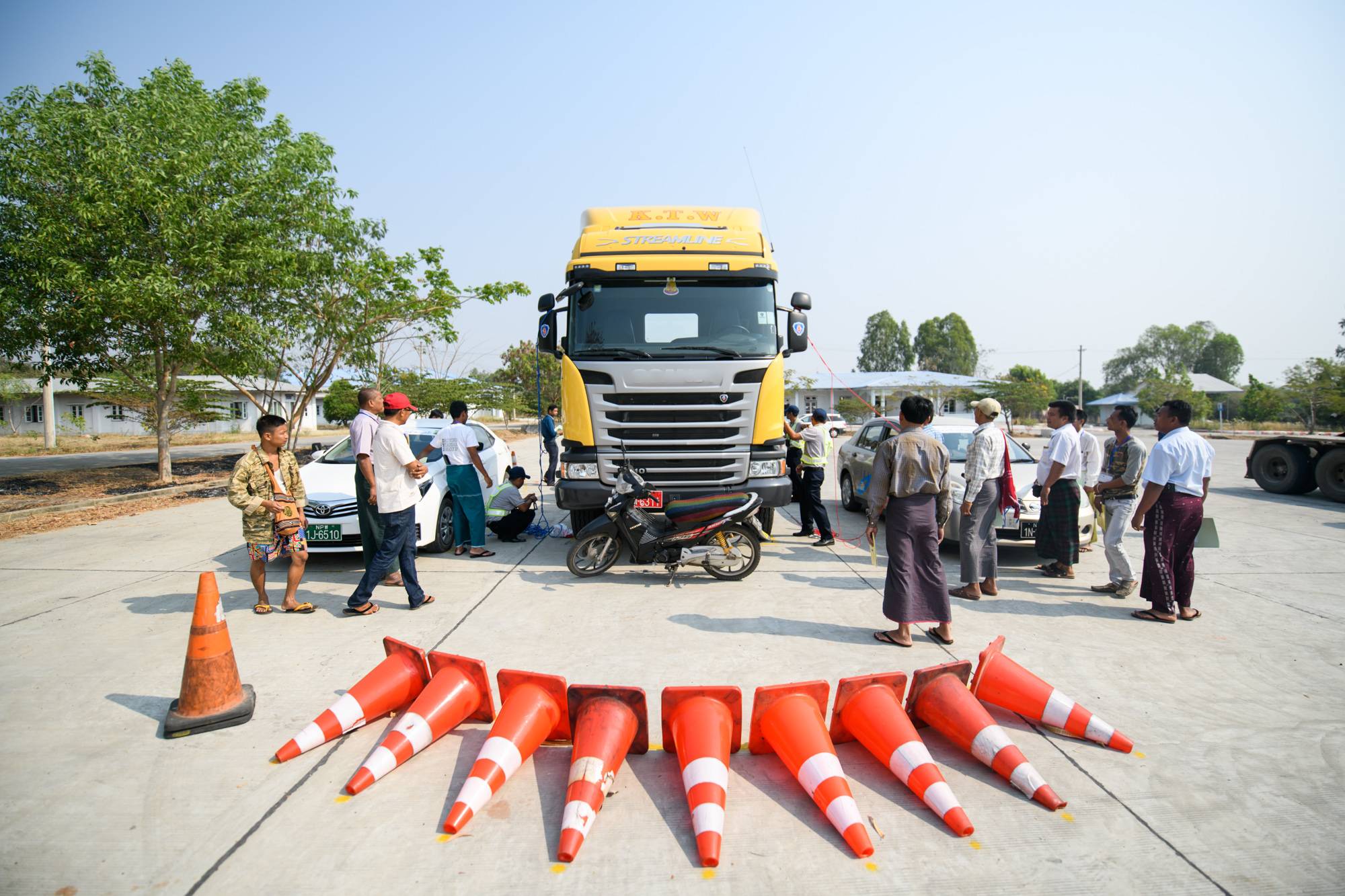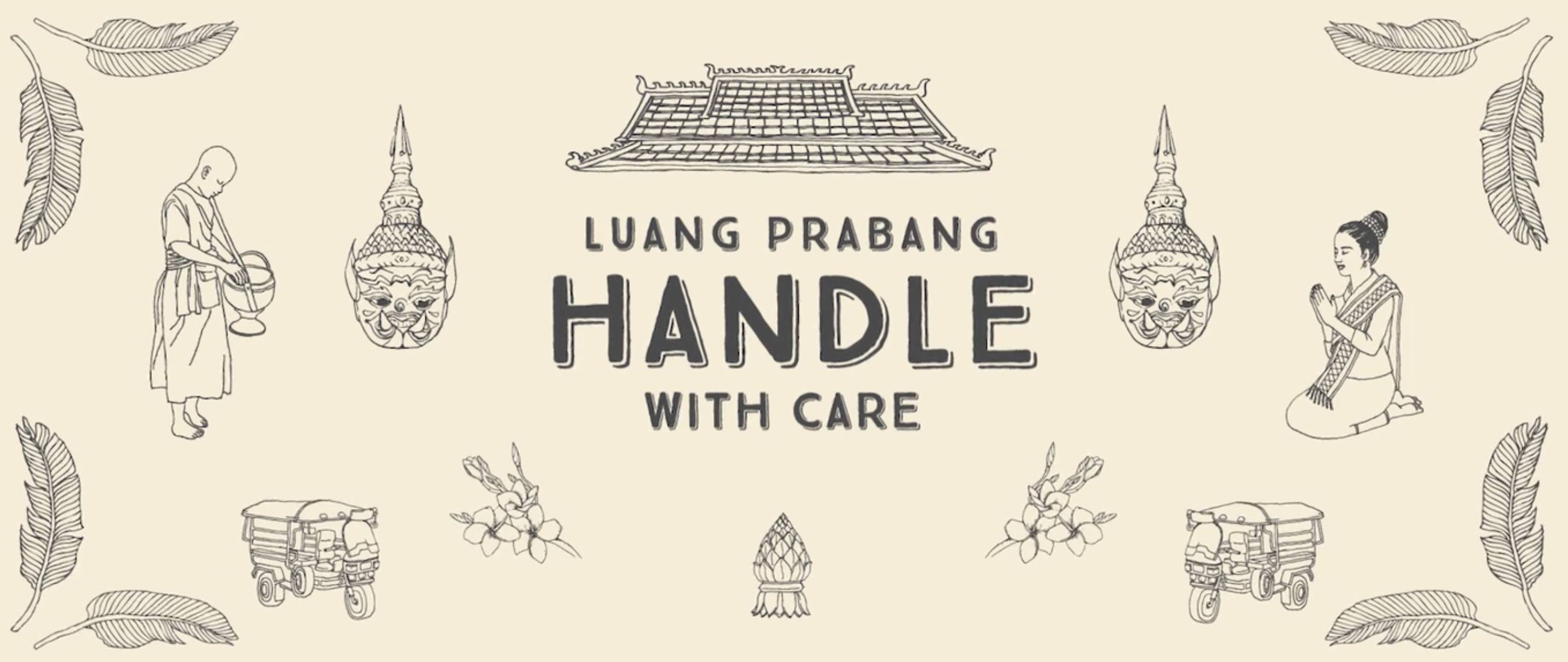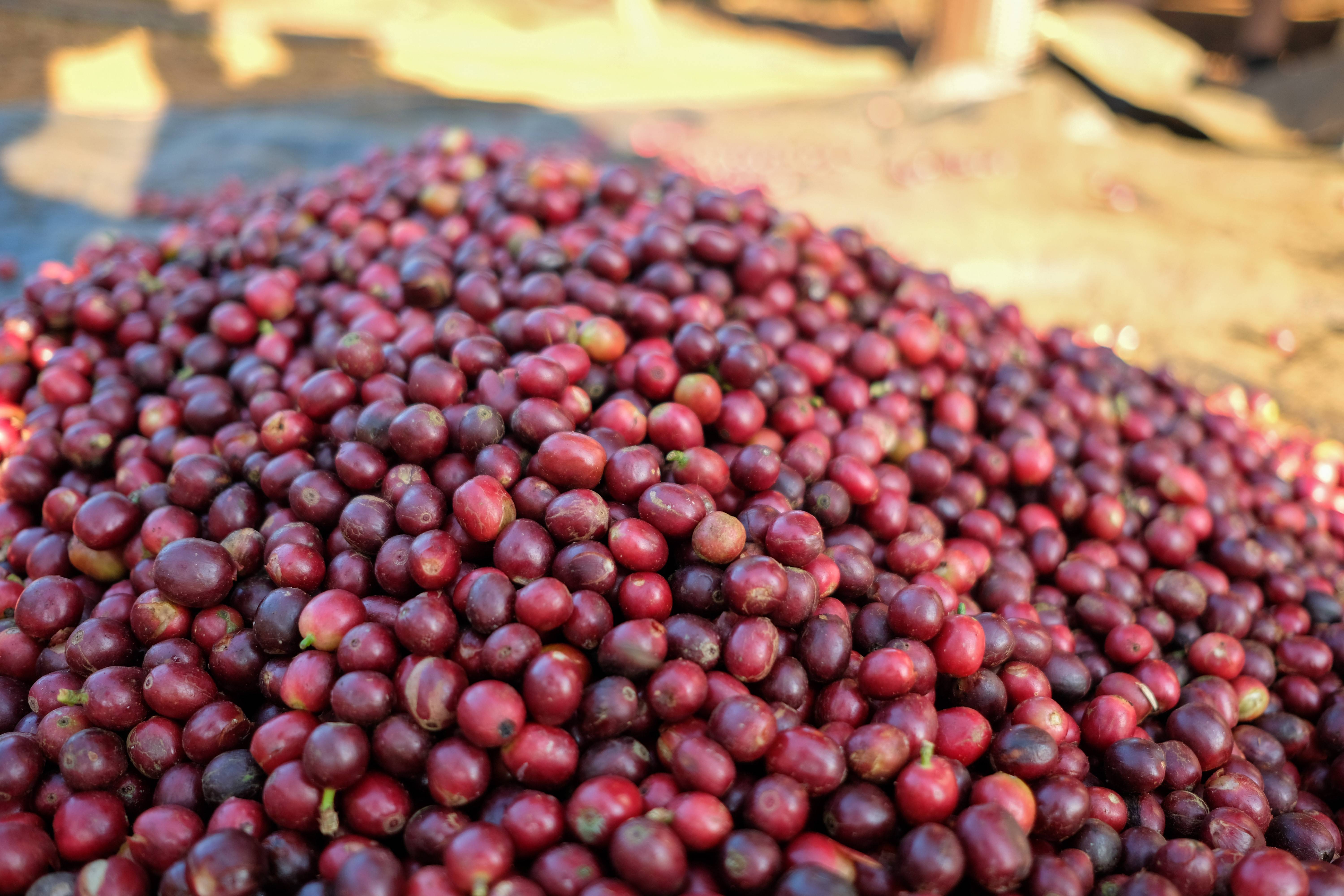
Strategically situated in the heart of Southeast Asia, Lao PDR has the ambition to become an agro-industrial country with boosting eco-tourism while preserving its unique culture. Strong economic growth in the past decades enabled the country to become a lower-middle income country in 2010. However, the economic growth has been largely driven by natural resource extraction. The Lao PDR Vision to 2030 and its 10-year Strategy (2016-2025), as well as the five-year 9th National Socio-economic Development Plan (NSEDP) 2021-2025 and the National Green Growth Strategy for 2030, all clearly identified policy priorities transitioning to a greener development model towards increase human capacity, regional and international integration, and sustainable development. The National Green Growth Strategy until 2030, adopted in 2018, focuses in particular on: (1) raising the efficiency and effectiveness of the utilization of limited natural resources of the country to ensure optimal benefits; (2) economic growth that is clean and environmentally-friendly and that decreases wastes and greenhouse gas emissions.
Connection to the Global Agenda
Lao PDR submitted its third Voluntary National Review (VNR) in 2024. This third VNR examines the progress and status of all 17 SDGs and One National SDG18 “Lives Safe from UXO” while analysing more in-depth 11 key selected SDGs. The 2024 triennial review by the Committee for Development Policy found the Lao PDR eligible for LDC graduation for the third time, putting the country on-track for graduation by 2026. However, the prolonged impact from the COVID-19, exacerbated by the on-going economic and financial difficulties and other crisis, have posed significant challenges. There is little data available on SDG12 indicators; data currently available covers progress made in the area of sustainable tourism. Lao PDR’s first submission of their 2018 VNR emphasized that policy and operational frameworks on Sustainable Development Goals (SDG) 12 are inadequate because of the relative newness of SCP in Lao PDR. Progress on SDG 12 for the Lao PDR will mean fortifying the long-term results for progress on other SDGs, which depend strongly on the efficient use and sustainable management of natural resources.
A Key Solution to Climate Change
According to the 2020 Global Climate Risk Index, Lao PDR ranks 22nd out of 180 in terms of exposure to loss and damage due to climate change. In addition, with 65 percent of the workforce employed in the agriculture and forestry sectors, the Laotian population relies heavily on high-quality natural resources for its subsistence. Lao PDR submitted an updated NDC in May 2021. The focus of the updated submission is on reforestation and fossil fuel use reduction. The unconditional measures proposed in the NDC relate to reducing emissions from deforestation and forest degradation, adding 13GW in total hydropower capacity; introducing 50,000 energy efficient cookstoves; adopting three transport measures to support a new bus rapid transit (BRT) system in Vientiane and expanding non-motorized transport. The other measures – including the most substantial, which seeks to increase forest cover to 70 percent of land area - are conditional upon international support. Recent research suggests that Lao PDR can become net carbon neutral by 2040 by adopting a circular economy approach. Most of the circular mitigation and sequestration potential lies in wood-based construction, improving livestock efficiency, prioritizing active, shared, public and electric transport and reducing food losses.
Priority Sectors
In its Sustainable Consumption and Production Roadmap of Lao PDR 2022-2025, the Vision 2030, the Lao PDR Government highlights the following tasks to be accomplished (i) Develop and improve a policy framework for the implementation of sustainable consumption and production (ii) Promote the production of environmentally friendly products (iii) Waste management (iv) Change consumption behaviour to a sustainable lifestyle and (v) Promote eco-tourism services and environmental education. The evaluation of the current SCP Roadmap 2022-2025 is underway to inform the new Roadmap 2026-2030, which is scheduled for completion before the end of 2025.”
A look back at milestones that shaped our work
2018
SCP Facility
- Preliminary assessment of SCP related policies, activities, needs/gaps, and opportunities.
Regional Policy Advocacy Component (RPAC)
Facilitated the participation of Laotian key-stakeholders in the following regional/ sub-regional activities:
- Asia Pacific Low Carbon Lifestyles Challenge (19-22 Mar 2018), hosted by Thailand, regional level
- Transforming Asia Pacific: Innovative Solutions, Circular Economy and Low Carbon Lifestyles (17-19 Sep 2018), hosted by Thailand, regional level
- Asian Circular Economy Leadership Academy (3-8 Dec 2018), hosted by Thailand, regional level
2019
SCP Facility
- A multi-stakeholder consultation was organised on 28 March 2019.
- Demand was received from the National Focal Point of the Ministry of National Resources and Environment for: 1) mainstreaming SCP into the 9th National Socio-Economic Development Plan; and 2) preparing a policy report mapping related to plastic waste.
- A concept note is currently being prepared.
Regional Policy Advocacy Component (RPAC)
Facilitated the participation of Laotian key-stakeholders in the following regional/ sub-regional activities:
- “Sustainability Reporting – Thinking Circular Economy by Businesses” - This event was organised back-to-back with 2019 Asia Pacific Forum on Sustainable Development (27 Mar 2019), hosted by Thailand, regional level
- Businesses Accelerating Inclusive Green Economies – "Leaving No One Behind” - Side event on the Responsible Business and Human Rights Forum co-organised by the Royal Thai Government, OECD, United Nations Development Programme (UNDP), ESCAP, International Labour Organization (ILO) and with the participation of the UN Working Group on Business and Human Rights (11 Jun 2019), hosted by Thailand, regional level
- 2019 Southeast and Northeast Asia Policy Dialogue and Training on “Harmonizing SPP practices and Measuring SPP benefits” - The activity took place in parallel with a series of events related to green procurement organized by the China Environmental United Certification Center (CEC) (23 - 25 Oct 2019), hosted by China, regional level
- WEBINAR: SDG 12.1 Reporting for SWITCH-Asia Countries – Connecting the dots between actions and reporting (5 Nov 2019), regional level
- Policy Dialogue on SDG12 Reporting (21 Nov 2019), hosted by Vietnam, regional level
- 2019 SWITCH-Asia Leadership Academy on Circular Economy (2-6 Dec 2019), hosted by China, regional level
- "Supporting decision making on SCP through training on Sustainable Procurement” - This event was organised back-to-back with International Conference on Sustainable Energy and Green Technology 2019 (11 Dec 2019, hosted by Thailand, regional level
2020-2021
SCP Facility and RPAC
Implementation of the following activities with the Ministry of Natural Resources and Environment Lao PDR, the SCP Facility, and the Regional Policy Advocacy Component (RPAC) with guidance from EU Delegation:
- Led by RPAC, Development of the National Roadmap on SCP and facilitate mainstreaming of SCP into the 9th National Socio-Economic Development Plan (NSEDP);
- Led by the SCP Facility, preparation of a policy analysis report addressing the minimization, reduction and prevention of use of single-use plastics in selected priority sectors and collaboration of work through the joint partnership initiatives with the World Bank on developing the national plastic action plan.
2020
Regional Policy Advocacy Component (RPAC)
- The RPAC has provided technical support to Lao PDR in developing policy supporting documents i.e Scoping Study on SCP and the National SCP Roadmap to advocate and mainstream SCP into the national development plans.
Facilitated the participation of Laotian key-stakeholders in the following regional/sub-regional activities:
- SWITCH2Green Meeting - RPAC initiated the discussion and shared the first report in 2020. (April 2020)
- MOVING THE NEEDLE ON CLIMATE CHANGE – The event was co-organised by the UNESCAP as a part of the 2020 Virtual United Nations Responsible Business and Human Right Forum (RBHRF) (10 Jun 2020), regional level
- WORLD ENVIRONMENT DAY 2020 – A media kit was provided to call for action to promote SCP as a part of the 2020 World Environment Day (WED) celebration (5-7 Jun 2020), regional level
- Intervention in regional forum: Webinar on Sustainable Lifestyles for Plastics & Packaging Waste Management During a Pandemic COVID-19 (6 Aug 2020), regional level
- SCP in Tourism: Opportunities and Challenges with COVID-19 (8 Oct 2020), regional level
- Innovation and Connectivity through Farm to Fork (13 Nov 2020), regional level
- Sustainable Lifestyles for SCP (19 Nov 2020), regional level
- Support to Steering Committee of SWITCH-Asia – Provide support for the annual Steering Committee Meeting to review each country proposed 2021 workplan (3 Dec 2020), regional level
- Regional Policy Dialogue on Circular Cities (4 Dec 2020), regional level
- Regional Dialogue Driving Mechanisms for Eco-Design in Asia (9 Dec 2020), regional level
- Leadership Academy on Circular Economy 2020 (14-18 Dec 2020), regional level
- Webinar: Innovations & Startups (16 Dec 2020), regional level
2021
Facilitated the participation of Lao key-stakeholders in the following regional/sub-regional activities:
- Contextualising the Circular Economy for Action (4 Feb 2021), regional level
- Virtual Consultation: Mapping SCP in ASEAN Countries (17 March 2021), sub-regional level
- Technology for Circular Economy: A Prologue to the 2021 SWITCH-Asia Leadership Academy (25 March 2021), regional level
- Circular Economy and Sustainable Lifestyles Course (18 May 2021), regional level
2022
SCP Facility
- Ongoing collaboration with World Bank in building the capacity of the Ministry of Natural Resources and Environment to prepare the National Plastics Action Plan in Lao PDR and ensuring multi-stakeholder engagement in policy consultation processes.


